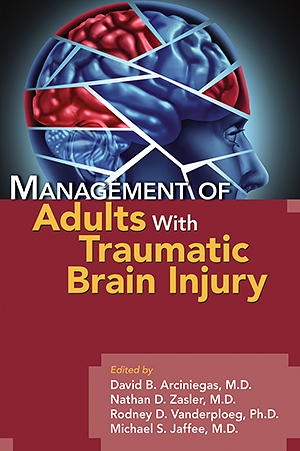Chapter 10.Aggressive Disorders
Sections
Excerpt
The onset of disorders such as stroke and traumatic brain injury (TBI) is often sudden but is frequently followed by persistent and disabling long-term neuropsychiatric consequences. Few posttraumatic neuropsychiatric symptoms and syndromes are more disruptive to interpersonal familial, societal, educational, and occupational functioning and activities than agitation, aggression, and violent behaviors. Agitation and irritability that occur in a patient during the acute stages of recovery from TBI not only endanger the safety of the patient and his or her caregivers but also predict increased lengths of hospital stay and impaired cognition (Bogner et al. 2001). As recovery continues, low frustration tolerance and explosive behavior may develop in response to minimal provocation or sometimes may occur without any warning at all. These behaviors may be limited to irritability or may include violent outbursts resulting in damage to property or assaults on others. In severe cases, it may be unsafe for individuals with aggressive disorders to remain in the community or with their families, and referral to long-term psychiatric or neurobehavioral facilities is sometimes required. All clinicians, and especially mental health professionals, need to be knowledgeable about and able to evaluate and treat neurologically induced agitation, irritability, aggression, and violence among their patients with TBI.
Access content
To read the fulltext, please use one of the options below to sign in or purchase access.- Personal login
- Institutional Login
- Sign in via OpenAthens
- Register for access
-
Please login/register if you wish to pair your device and check access availability.
Not a subscriber?
PsychiatryOnline subscription options offer access to the DSM-5 library, books, journals, CME, and patient resources. This all-in-one virtual library provides psychiatrists and mental health professionals with key resources for diagnosis, treatment, research, and professional development.
Need more help? PsychiatryOnline Customer Service may be reached by emailing [email protected] or by calling 800-368-5777 (in the U.S.) or 703-907-7322 (outside the U.S.).



